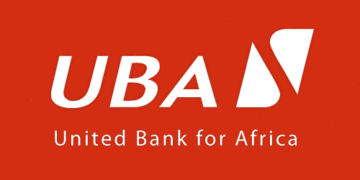Despite the harsh operating environment and high running costs in an election year, commercial banks in Nigeria are projected to grow their pre-tax return on equity by 23 per cent by the end of this year as the industry loan book is expected to grow by 16.5 per cent.
Agusto & Co in its 2022 Banking Industry outlook just released said it anticipates a 16.5 per cent year-on-year loan growth in 2022 as more banks have a better understanding of the macroeconomic headwinds.
The rating agency had noted the resilience shown by the Nigerian banking industry in FY 2021, as the Industry’s loan portfolio grew by 21 per cent despite the weak economy and regulatory constraints.
“Notwithstanding the prevailing global supply constraints, the Russian-Ukraine crisis and insecurity challenges that continue to hamper food and crude oil production in Nigeria, we anticipate a 16.5% year-on-year loan growth in 2022. Traditional sectors such as oil and gas, manufacturing, general commerce and agriculture sectors are expected to drive the loan growth given the backward integration initiatives of obligors, the intervention activities of the CBN and the import-dependence nature of the Nigerian economy.
“While the arbitrary cash reserve deductions and foreign exchange illiquidity would remain limitations to the growth of the Industry’s loan portfolio, we note that more banks are now favourably disposed to accessing the differentiated cash reserve requirement (DCRR) window to reduce the value of sterile restricted funds with the CBN.
near term, we believe the Industry’s asset quality will remain acceptable, with the impaired loan ratio hovering around six per cent as at 31 December 2022. In our view, a proactive tightening of controls around loan origination and intensified loan monitoring will moderate the impact of the tough operating climate on the loan portfolio.”
Whilst noting that the Nigeria’s banking industry remains well capitalised relative to the business risks undertaken and should remain so in the near term, the rating agency said “in preparation for the full implementation of Basel III and based on the scheduled growth plans, we expect an increased appetite for perpetual bond issuances which qualify as additional tier 1 capital. We also believe that some banks will raise common equity tier 1 capital that will keep the Industry’s capital adequacy ratio above 17 per cent.”
By the end of 2022, Agusto & Co, projects a decline in the Industry’s net interest spread as the prevailing low yields on government securities, which dominate the Industry’s investment securities, moderates the impact of the uptick in interest rates. “However, we anticipate an increase in the net earnings driven largely by higher trading income and electronic banking fees. Nevertheless, we note that the forthcoming elections and growing budget deficit have forced the federal government to modify several extant tax legislations which will moderate the banking industry’s profits.
“Overall, Agusto & Co expects the Industry’s pre-tax return on average equity to increase to 23 per cent in FY 2022. Our financial prospects for Industry are largely stable in the near term. We adjudge the Industry as resilient and the current trend of banks adopting the holding company structure to diversify into other financial services segments while exercising control over subsidiaries should support the Industry’s profitability.”
On the African Continental Free Trade Area (AfCFTA), Agusto & Co noted that it is also another vital prospect for Nigerian banks given that financial institutions with a strong capital base and efficient network across the continent are essential for the full implementation of AfCFTA. Overall, Agusto & Co believes the banking industry’s performance will remain moderate in the short to medium term and on this basis, our outlook for the Industry is stable











